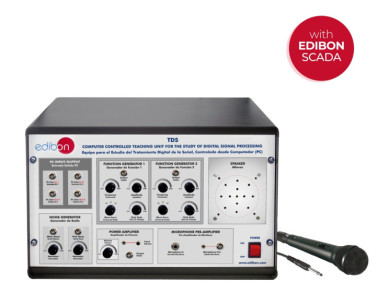FOR FURTHER INFORMATION, CONTACT US
2.3.- THEORETICAL - PRACTICAL FUNDAMENTALS
The electronics fundamentals are the set of knowledge aimed at providing the student with a solid base to analyze and understand the general operation of the most common electronic circuits, and the individual function of the electronic components that compose them.
View moreAcquiring a good theoretical basis in a discipline as specialized as electronics is a necessary step for the subsequent design and development of complex electronic systems. Because electronics is also a branch of engineering, much of the theoretical concepts have a direct practical application, which greatly facilitates the comprehension of the concepts by the electronics student if the theoretical classes are taught with an associated practical example.
The electronics fundamentals cover a wide variety of topics, among them the analysis of electronic circuits (using equations and procedures such as Ohm's law, Kirchhoff's circuit laws, Thévenin's theorem, the superposition theorem, the transformation of the analyzed circuit to a simpler equivalent circuit, etc.), the study of basic components (resistors, inductors, capacitors, transistors of different technologies, diodes, thyristors, logic gates, etc.) and a set of circuits grouped by functionality (voltage power supply and current power supply, low-pass and high-pass filters, amplifier circuits, resistive circuits, different transistor polarization circuits, introduction to digital circuits, logic circuits, etc.).
View Products Cookie preferences
Cookie preferences

